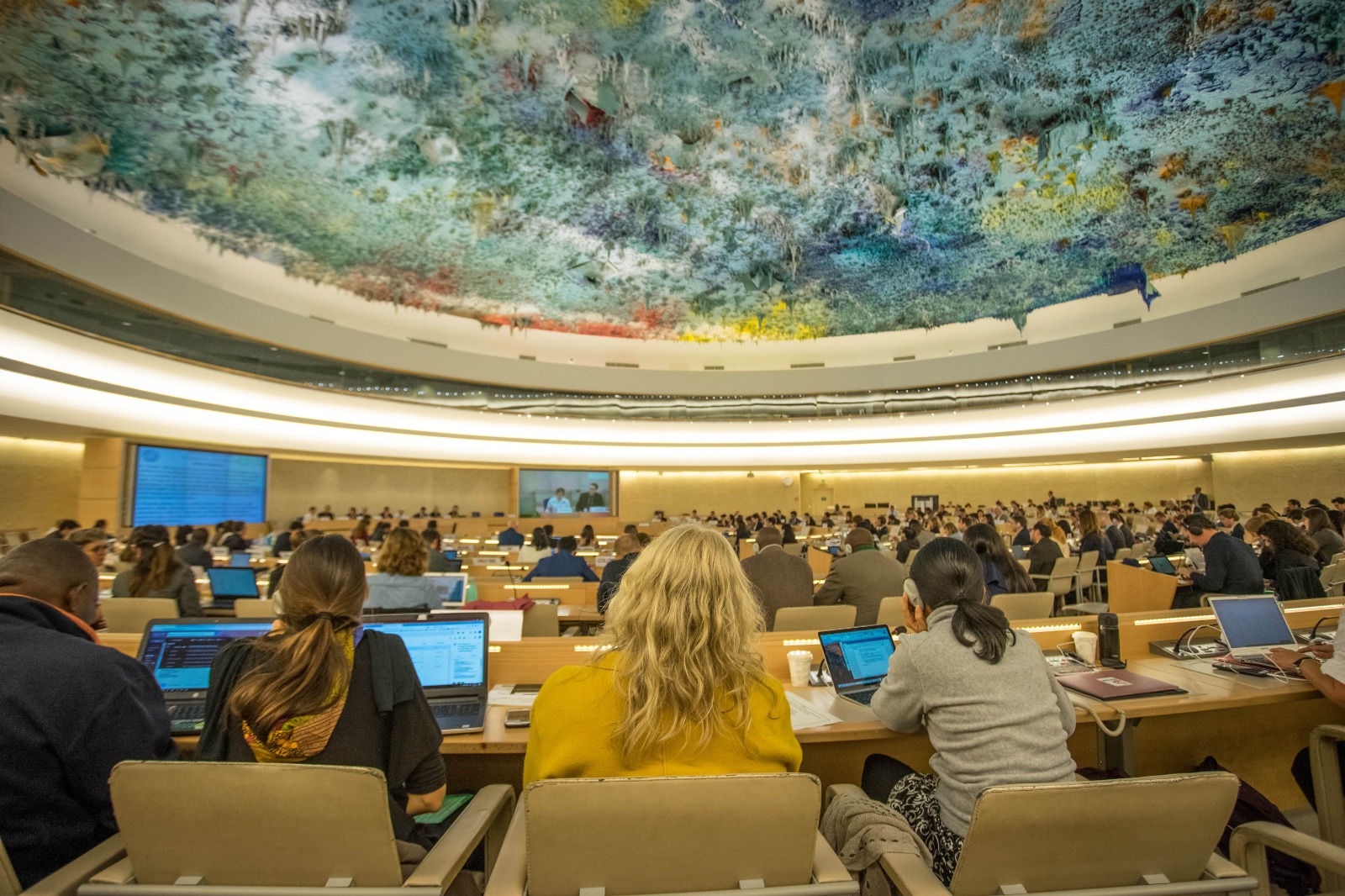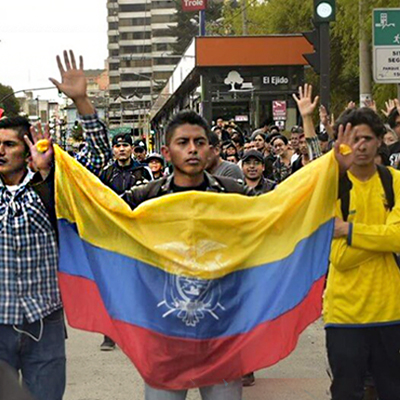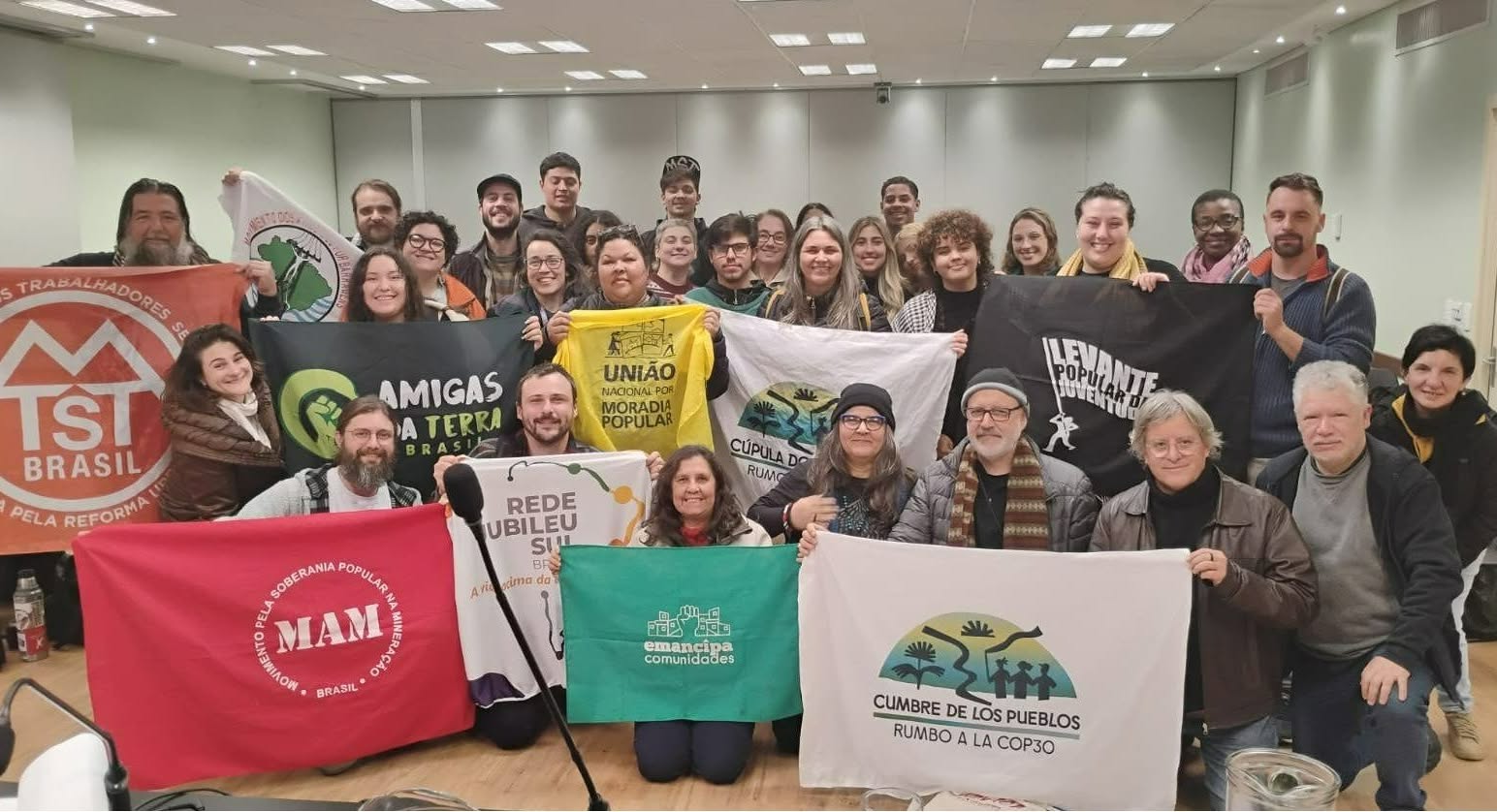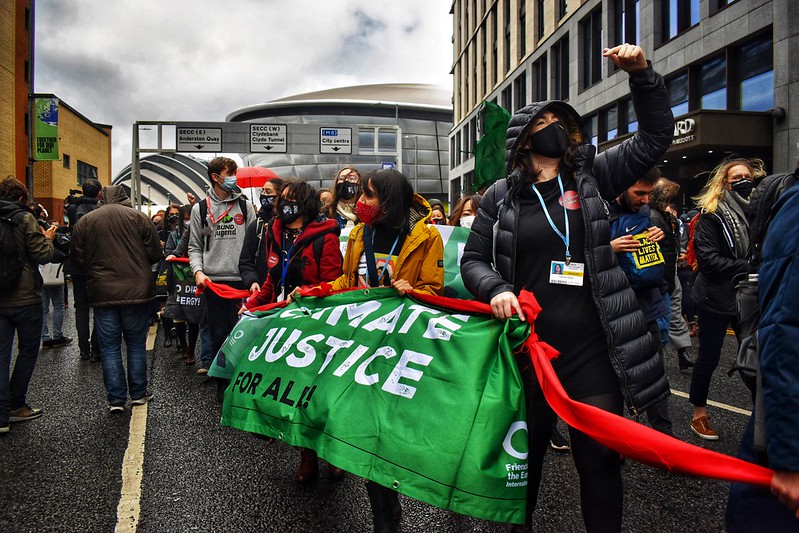How corporations are taking over the UN
Activists and experts warn about the corporate takeover of global governance mechanisms
 Working Group for a Binding Treaty among Transnationals and Human Rights. Photo: RWR
Working Group for a Binding Treaty among Transnationals and Human Rights. Photo: RWR
The COVAX mechanism to distribute Covid-19 vaccines, mobile apps giving companies access to private data, biotechnology, language capture and alleged rights-based discourses — these are all examples of strategies used by transnational corporations to gain more power over global governance each day.
In 2021, social movements defending Food Sovereignty warned about the strong influence exerted by agroindustrial corporations over the UN Food Systems Summit.
Another red flag was the UN Secretary General Antonio Guterres’ report “Our Common Agenda”, published last September. The report posits corporations at the centre of solutions to multiple global crises, and sees them as legitimate partners, even though they are mere stakeholders.
“It is concerning how the UN Secretary General is trying to push in favour of this governance system,” said Sofía Monsalve, at the opening of a roundtable discussion last week entitled “Our future at stake: The corporate capture of multilateralism”. The webinar was held on 19 January by the People’s Working Group on Multistakeholderism, which includes organisations like the Transnational Institute (TNI), Friends of the Earth International, FIAN and others. The panellists were Rosa Pavanelli (Public Services International), Jeremy Corbyn (Member of UK Parliament), Bárbara Figueroa (Trade Union Confederation of the Americas, Chile) and Harris Gleckman (Senior Fellow at the Center for Global Governance and Sustainability, University of Massachusetts, Boston). The discussion sought to analyse Guterres’ report and come up with strategies to reverse the role of corporations in global governance and new multistakeholderism governance systems.
One of the main issues with corporations being in control of global governance is that democratically elected governments are stripped of power and that “market solutions are used to solve social problems,” explained Monsalve.
The expert referred to global governance as “a system that is informal, opaque, that operates without formal rules, fluid, evolving and which adapts itself to the pressure found along the way. It is different from the multilateral system of governments post World War II.”
Along these lines, Harris Gleckman, who worked for over 20 years at the UN, said that it is “shocking” how corporations came from being in the background to now having “UN secretaries even asking what corporate actors want” in order to adapt proposals and action programs to corporate interests. He also denounced that “the goal of the UN Secretary General is to reinforce his role over the governance of governments and give corporations a seat at the table of the governance system.”
Gleckman warned that this will cause UN leadership “to be restricted,” since the “Our Common Agenda” report states that the seven issues that require urgent attention (such as access to digital rights, reduction of violence against women and children, and the climate crisis) need to be addressed “through multistakeholder bodies, who have goals that are very different from those of governments and the civil society; and who demand no new intergovernmental negotiations.” “This represents a significant shift in power,” he concluded.
Rosa Pavanelli highlighted that corporations “have been building this governance model for years.” “We have seen this in negotiations at the World Trade Organisation (WTO), with multilateral and free trade agreements, with mechanisms such as the ISDS that rule in favour of corporations and that have been taking over the UN system with the Global Pact. They have replaced UN bodies through the OECD and this will only deepen poverty and undermine the ability of citizens to decide over their future. If they manage to do this, it would be the last paradigm shift in the UN and control will be in the hands of corporations,” she warned. “We need to deal with this because it will have huge impacts on our lives, with the expansion of digital systems and the use of our data, as we have seen in the pandemic.”
UK Member of Parliament Jeremy Corbyn said that organisations need to be “better organised” among themselves to face the concentration of corporate power: “If we want this planet to survive, we cannot rely on a system that only aims to keep exploiting resources.”
Pavanelli stated: “If we want a democratic multilateral system, we need to strengthen democratic multilateral governance. The Washington Consensus has reached its end and we need to address the issue of debt for the least developed countries: it is not only a matter of economy, it is a matter of democracy. If we want democratic governance, we need to denounce the agreement between the UN and the World Economic Forum. I would love to see the leader of the Trade Union Confederation leave the co-chair position of the Forum and go back to fighting for workers’ rights.”
Meanwhile, Bárbara Figueroa highlighted the need for unity in the working class to face corporations and fight for “regulatory instruments and due diligence”. “As long as we don’t have these legal tools, inequality will keep growing, democracy will keep being weakened and the legitimacy of workers will continue being challenged,” she highlighted. “The pandemic has shown cracks in a model that deepens market value. And we can move towards fascist or progressive models. Being between conflicting models requires actions of unity, understanding and unity of social actors, that imply being part of multilateral integration spaces and putting the agenda of rights at the centre, underlining the violation of peoples’ rights,” stressed Figueroa.
In addition to these projections, Gleckman insisted that in order to recover a democratic multilateral system such as the UN, we need to think of “refounding the entire democratic system” and “replicating new constituent forms”. In this light, he mentioned: “Creating constituent assemblies, redefining the agenda; searching for issues that can be dealt with at these constituent assemblies; organising global conferences on these issues to continue with discussions, intervening and interacting in the upcoming meetings in February and March.”
Resources for discussion
The Peoples’ Working Group on Multistakeholderism called on organisations and social movements to join the discussions around corporate global governance and their proposals, that will take place over the next few months. As part of this, they launched a new e-book: “The Great Takeover: Mapping of multistakeholderism in Global Governance”.
The book presents an up-to-date listing of 103 multistakeholderism initiatives in the policy areas of education, environment, health, internet and data, and food and agriculture. For more information about the discussion, and to explore the database of multistakeholderism initiatives, check the Transnational Institute website.






